Raspberry Pi

Raspberry Pi is a low-cost, compact computer that is popular among hackers and security professionals. It runs a variety of operating systems and can be used for tasks such as penetration testing, network security, forensic analysis, reverse engineering, automation, and IoT security. It features a quad-core processor, up to 8 GB of RAM, built-in Wi-Fi and Bluetooth, and several USB and Ethernet ports for connecting to other devices.
WiFi Pineapple
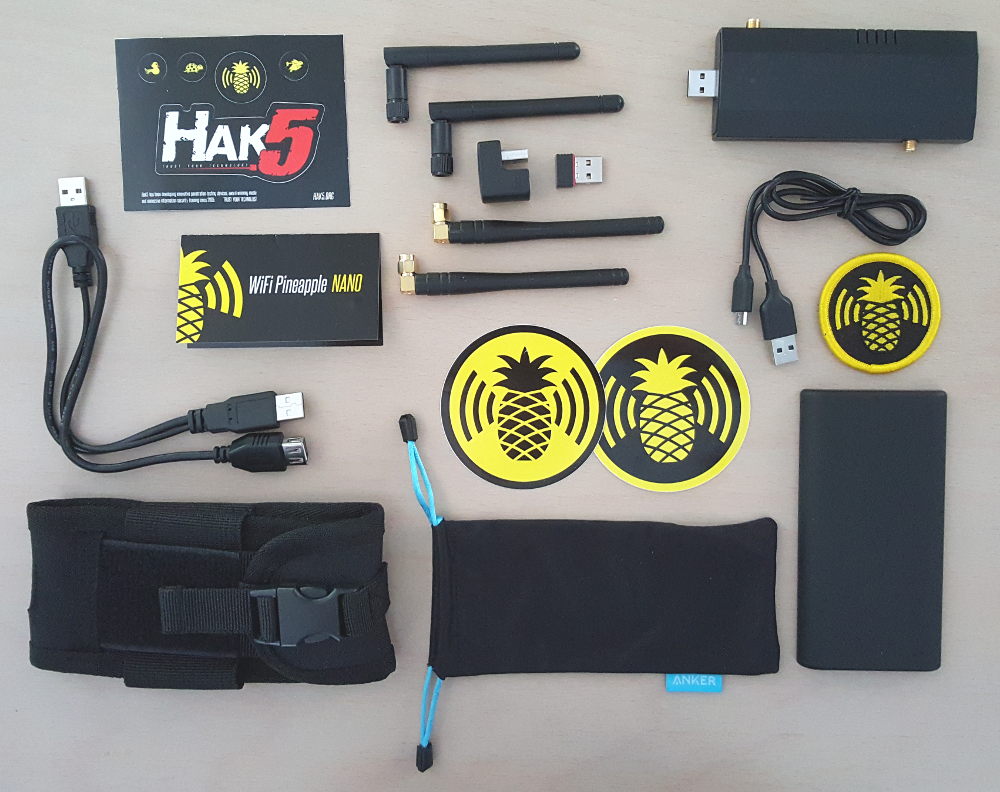
The WiFi Pineapple is a versatile device in the world of ethical hacking and penetration testing. It acts as a wireless access point, but with a twist: it can mimic a legitimate one, allowing security professionals and ethical hackers to test the resilience of wireless networks and identify any vulnerabilities. The Pineapple can redirect network traffic, perform man-in-the-middle attacks, and gather valuable information about the target network and its users.
With its ability to impersonate a trusted access point, the WiFi Pineapple is a powerful tool in the arsenal of those committed to improving network security through ethical means.
Flipper Zero
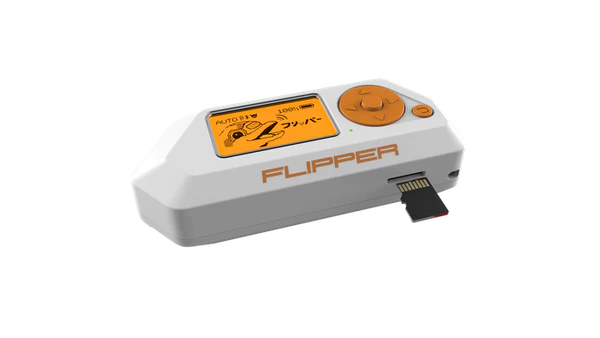
Flipper Zero is a compact and portable device designed for technology enthusiasts and security professionals alike. It offers the ability to interact with digital systems and tackle various tasks, such as exploring radio protocols, accessing control systems, and debugging hardware.
Thanks to its open-source and customizable nature, users can extend its functionality to suit their needs. Flipper Zero has a playful personality, reminiscent of a cyber-dolphin, and its versatility allows it to grow and adapt as it is used.
Whether you’re a seasoned security professional or just starting out, Flipper Zero is the perfect tool for exploring and learning about digital systems. With its ability to interact with RFID and debug hardware using GPIO pins, this tiny piece of hardware has a big impact on the world of technology.
New USB Rubber Ducky
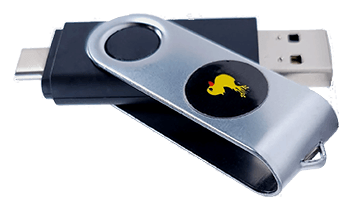
The new USB Rubber Ducky is a versatile tool that emulates human-like keystroke inputs to execute complex and sophisticated attack scenarios. Its ability to run tests based on the target machine’s operating system and execute specific actions on Windows or Mac systems makes it a flexible tool for attackers. Additionally, the support for the DuckyScript 3.0 programming language enables the creation of complex attack scenarios using functions, variables, and logic flow controls. It is important to be aware of its capabilities and take appropriate measures to protect systems from attack.
HakCat WiFi Nugget
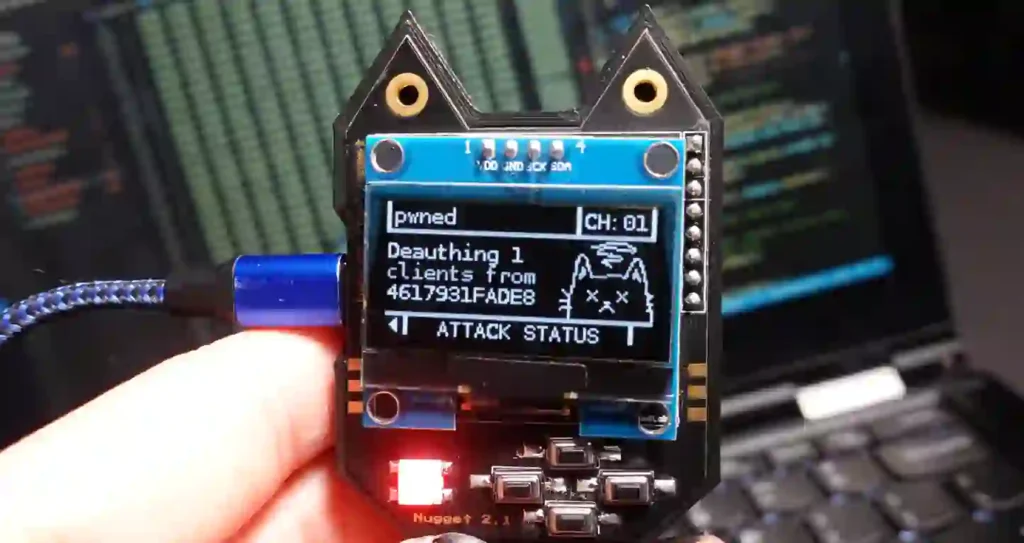
The HakCat WiFi Nugget is an open-source tool designed by Hak5 hosts Kody Kinzie and Alex Lynd to make learning about hacking fun and accessible. With its cute cat face and OLED screen, the device is approachable and invites users to get into Wi-Fi hacking. Pre-soldered and pre-flashed nuggets are available for purchase, but users can also build the device themselves using Gerber and BOM files from GitHub. The design is simple and requires a bit of soldering and 3D printing to complete. The firmware can be flashed using ESPTool in Chrome. The HakCat WiFi Nugget is a fun and inviting tool for those interested in learning about wireless security and hacking.
O.MG Cable

The O.MG Cable is designed for use by certified ethical hackers and red team members to emulate attack scenarios and test defense teams. The advanced features, such as keystroke and mouse injection, pre-installed payloads, and full-speed USB hardware keylogger, provide these security professionals with the tools they need to conduct thorough testing and training. With its various port options and advanced capabilities, the O.MG Cable is a valuable tool for certified ethical hackers and red team members to enhance their testing and training processes.
HackRF One
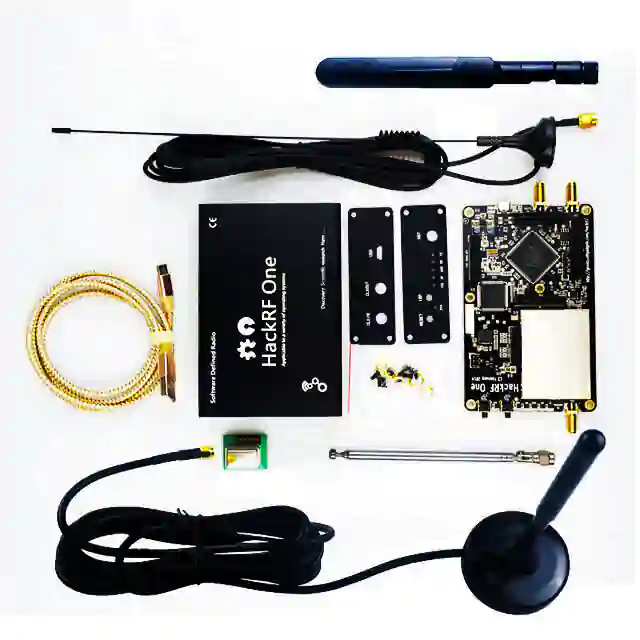
HackRF One is a Software Defined Radio (SDR) that allows users to receive, transmit, and manipulate radio signals. It operates in the frequency range of 1 MHz to 6 GHz, making it one of the most versatile SDRs on the market. The device was developed by Michael Ossmann and is manufactured by Great Scott Gadgets, a company based in Colorado, USA.
The HackRF One is a versatile and powerful tool for a wide range of applications. Its compact design, open-source hardware, and high sample rate make it a valuable tool for researchers, engineers, and hobbyists. However, its limited frequency range
Ubertooth one
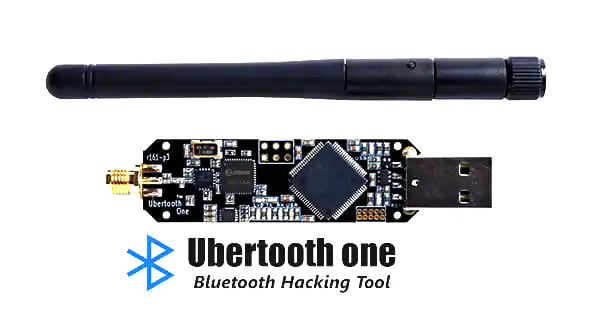
The Ubertooth One is a powerful and versatile open source development platform for anyone interested in Bluetooth experimentation and hacking. It is based on the LPC175x ARM Cortex-M3 microcontroller with full-speed USB 2.0, providing a wide range of capabilities, including monitoring, scanning and packet sniffing of Bluetooth signals. The Ubertooth One can also be used to discover and pair devices, as well as reverse engineer wireless protocols. This makes it a great tool for penetration testers, security researchers, and hobbyists who want to explore and understand the inner workings of Bluetooth communications. The Ubertooth One is an invaluable tool for anyone interested in learning more about wireless technology and Bluetooth security.
ChameleonMini

Chame leonMini is an RFID emulation device created by ProxGrind that is capable of simulating multiple types of RFID tag formats. It is a powerful and portable NFC emulation and manipulation tool which can be used for practical NFC and RFID security analysis, compliance and penetration tests, as well as for reverse engineering and other tasks. ChameleonMini is able to emulate a wide range of common contactless cards, including ISO 14443A/B, ISO 15693, MIFARE Classic, and MIFARE DESFire.
Hardware Keylogger
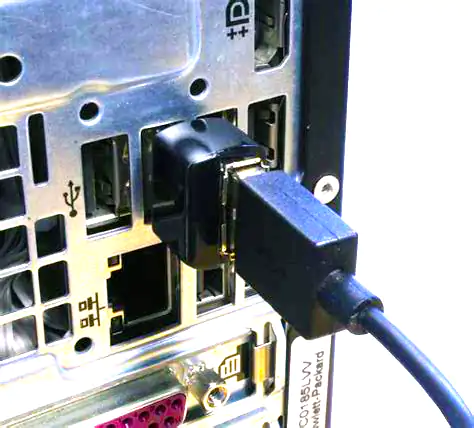
A hardware keylogger is a device used to record keystrokes. It is attached to the computer, either internally or externally, and it starts its applications when it is powered on. The hardware keylogger records all of the keystrokes and stores them on a memory chip. Typically, hardware keyloggers are used by hackers to gain access to sensitive information, such as usernames, passwords, and financial information. Hardware keyloggers can also be used by employers to monitor employees’ computer usage, or by parents to monitor their children’s online activities.

Leave a Reply